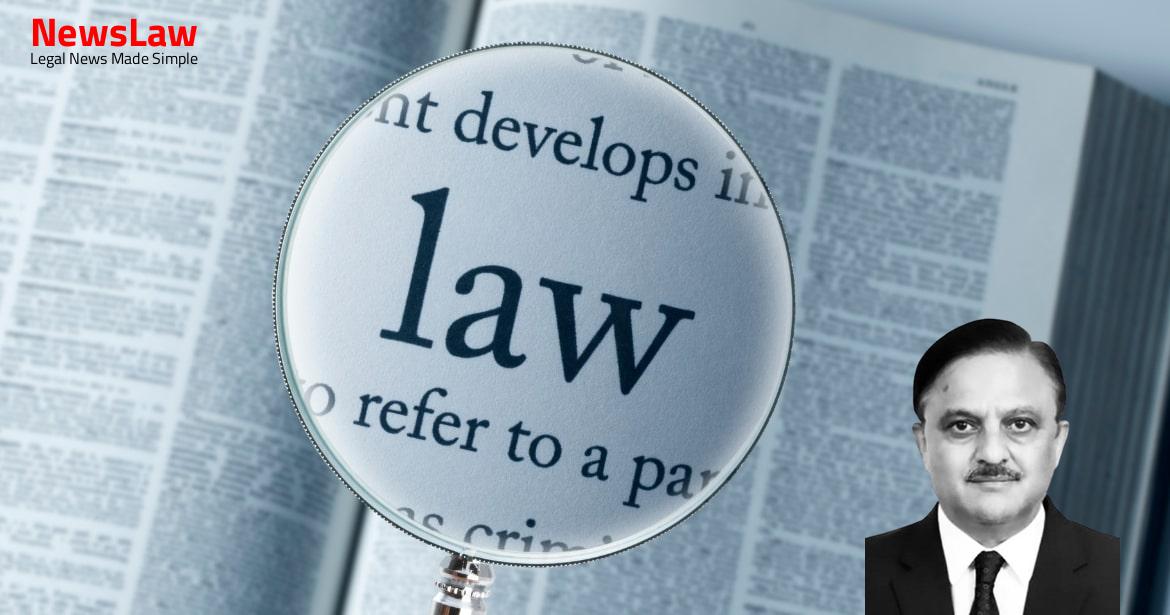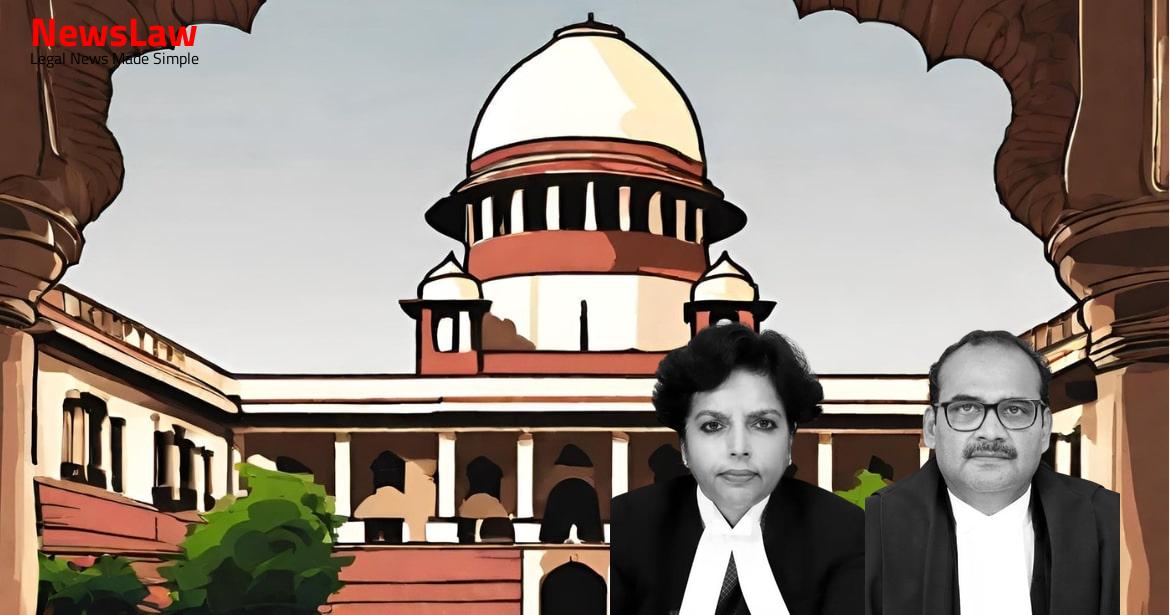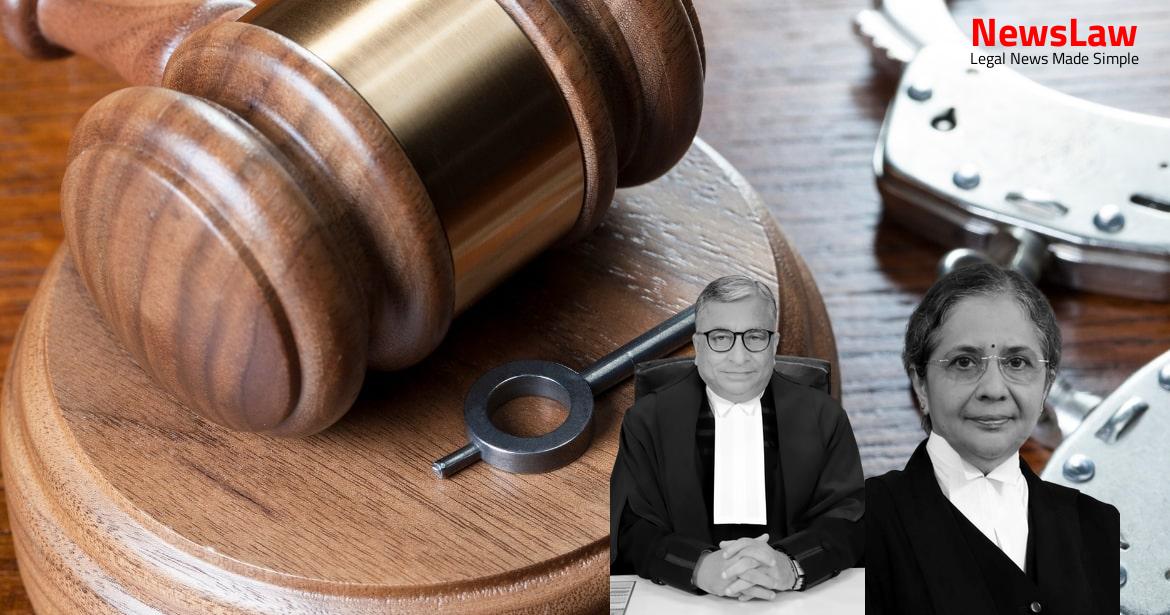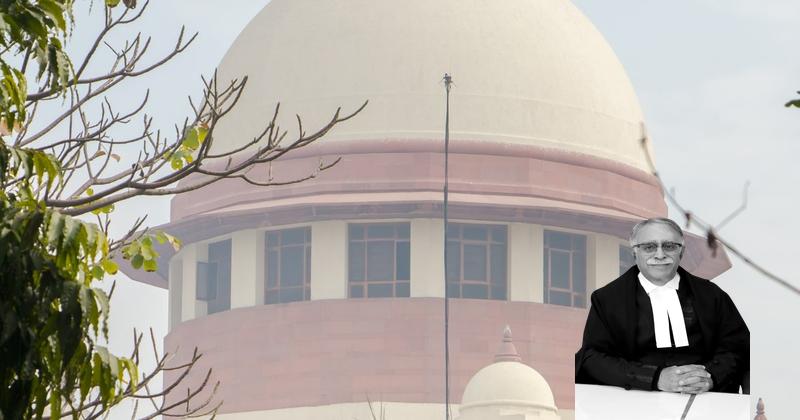In a significant ruling by the Supreme Court of India, the case involving the State of West Bengal and the Accused has brought a spotlight on the importance of upholding justice for victims. The judgement addresses critical issues related to child protection and legal accountability, marking a pivotal moment in ensuring the rights and well-being of vulnerable individuals. This decision sets a standard for holding all entities, including the judiciary, accountable for their actions in cases involving crimes against minors.
Facts
- The State of West Bengal has filed a criminal appeal against the judgment of acquittal passed by the High Court.
- The accused was convicted under Section 6 of the POCSO Act and Sections 363 and 366 of the IPC by the Special Judge.
- The High Court used its jurisdiction under Article 226 of the Constitution and Section 482 of the Cr. PC to set aside the conviction under Section 6 of the POCSO Act and Sections 363 and 366 of the IPC.
- The High Court acquitted the accused for the offences under Sections 363 and 366 of the IPC based on the findings.
- The victim, disowned by her mother, was residing with the accused and their minor child.
- No separate punishment was imposed for the offences punished under clause (n) of sub-section (2) and sub-section (3) of Section 376 of the IPC due to the sentence under the POCSO Act.
- The charge under Section 9 of the 2006 Act was not substantiated as there was no evidence of marriage between the victim and the accused.
- Accused committed the offence with the help of his two sisters.
- Prosecution examined seven witnesses.
- Both accused and his sisters provided valuable assistance to the Court.
- Gross delay in investigation, accused arrested on 19 December 2021.
- Accused charged under Section 9 of Prohibition of Child Marriage Act, 2006.
- Ms. Nidhi Khanna, Advocate-on-Record, assisted the Court.
- Victim’s mother visited accused’s house to request the return of her daughter.
- Mother lodged FIR on 29 May 2018.
- Chargesheet filed on 27 January 2022 for offences accused was convicted of.
- Accused enticed the victim girl to leave her home, victim did not return.
- Victim was fourteen years old at the time of the incident.
- Victim’s mother stated in complaint that the minor daughter escaped on 20 May 2018.
- Accused is the biological father of the child.
Also Read: Harilal vs. State of India: Acquittal of Accused No.3
Arguments
- The accused and the victim are in agreement to continue cohabitation
- The learned senior counsel for the State Government has taken a fair stand
- Arguments from both sides have been heard
Also Read: Ahmad Palace Bail Case: Supreme Court Ruling
Analysis
- The High Court made several irrelevant and unwarranted observations while dealing with an appeal against the order of conviction.
- The High Court’s observation regarding criminalisation of romantic relationships between adolescents of the opposite sex was deemed unnecessary.
- The judgment should have focused on concise statements of facts, analysis of evidence, and reasons for confirming or acquitting the accused.
- The High Court’s discussion about consensual sexual acts among older adolescents was critiqued for lacking relevance in the case.
- The judgment should have been in simple language, free from personal opinions and verbose content.
- The failure of the State machinery to protect the victim and address the situation effectively was highlighted.
- Experts should be involved in determining the best course of action for the victim, respecting their informed choice.
- The Court’s observations on sexual behavior, reproductive health, and adolescent rights were considered irrelevant to the case.
- The judgment pointed out non-compliance with statutory provisions designed to protect victims under the POCSO Act.
- The concept of non-exploitative sexual acts being considered non-heinous was criticized, emphasizing the need for adherence to legal standards.
- Section 19 of the POCSO Act mandates the reporting of offenses to the Special Juvenile Police Unit or local police.
- Reports must be recorded, read over to the informant, and entered in a book by the Police Unit.
- Reports given by children should be recorded in simple language for their understanding.
- If necessary, a translator or interpreter should be provided to ensure the child understands.
- The police must report to the Child Welfare Committee and Special Court within 24 hours.
- Reporting offences under the POCSO Act is protected from civil or criminal liability if done in good faith.
- Section 31 of the JJ Act deals with the production of children before the Committee.
- The powers and duties of the Child Welfare Committee include providing care, protection, and rehabilitation to children in need.
- Rehabilitation and social re-integration processes must be based on individual care plans of children.
- Action must be taken for the rehabilitation of sexually abused children reported under the POCSO Act.
- The CWC is mandated to ensure the care and protection of children in need, even in cases where the child is repeatedly victimized.
- The process of rehabilitation should be family-based whenever possible, including restoration to family or guardianship.
- After care provisions for children leaving institutions are outlined in Section 46 of the JJ Act.
- Children in need of care and protection are defined under Section 2(14) of the JJ Act.
- Crimes have a harmful effect on the public and endanger society’s well-being.
- Allowing a crime-doer to go unpunished simply because the victim and offender have settled the dispute or compensation has been paid is not safe.
- Certain crimes, though harmful, can be compounded with or without the court’s permission.
- Serious offenses like murder, rape, dacoity, etc., as well as offenses of mental depravity or moral turpitude, cannot be settled between the offender and the victim.
- Settlements have no legal sanction for offenses under IPC, Prevention of Corruption Act, or those committed by public servants in their official capacity.
- The Judiciary is included in the list of entities being held accountable.
- All individuals and institutions, including the Judiciary, are expected to adhere to the principles of accountability and transparency.
- This decision sets a precedent for holding the Judiciary accountable for their actions.
Also Read: Property Tax Dispute: Avenue Supermarts Limited vs. Municipal Corporation
Decision
- A committee is to be formed within three weeks from the date of the judgement.
- The State Government must provide details of benefits for the victim within one week of the committee’s formation.
- The committee will meet the victim to communicate the State Government’s offers.
- The Ministry of Women and Child Development will compile and submit a report within three months.
- The Government of West Bengal is directed to form a committee of experts informing the victim about available benefits.
- Strict implementation of relevant provisions of the POCSO Act and JJ Act is emphasized.
- Copies of the judgement are to be forwarded to Secretaries of Law and/or Justice Departments of all States and UTs.
- The State Government can seek assistance from NIMHANS or TISS in constituting the committee.
- The committee’s report should detail interactions with the victim, opinions, and recommendations.
- Compliance reports must be submitted within two months to the Ministry of Women and Child Development.
- Sentencing will be considered after receiving the committee’s report.
- Consideration of framing Rules by States to give effect to provisions of Section 46 of the JJ Act.
- The judgement on sentencing is scheduled for 21 October 2024.
- Confirmation of the acquittal of the accused for specific offences.
- A sealed report regarding the committee’s findings to be submitted to the Court by 18 October 2024.
- Assistance to victims in accessing benefits under Government schemes is mandated.
Case Number: SMW(C) No.-000003 – 2023



